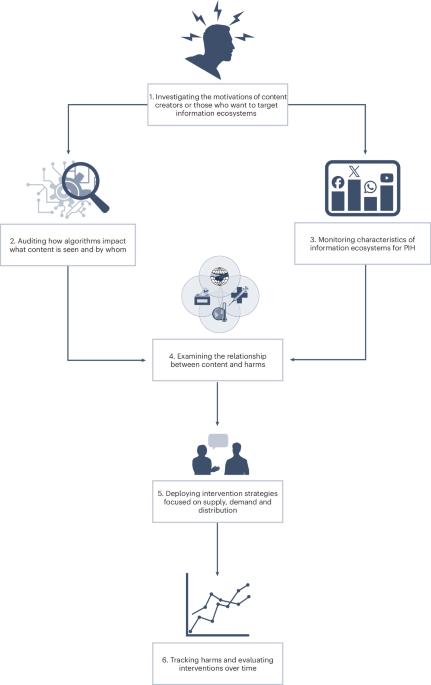Advocating for a community-centred model for responding to potential information harms
IF 15.9
1区 心理学
Q1 MULTIDISCIPLINARY SCIENCES
引用次数: 0
Abstract
Various characteristics of contemporary information ecosystems, including types of dangerous speech (hate speech and misinformation), affordances such as algorithmic targeting and structural barriers such as paywalls, are potentially causing harms to different communities. The current focus by practitioners on ‘social listening’ as the primary mechanism for detecting these harms is flawed, and we argue that mechanisms that effectively integrate and contextualize both offline and online data streams are required. We therefore outline a blueprint for a new model, the Community-Centered Exploration, Engagement, and Evaluation system. It draws on lessons learned from integrated epidemiological surveillance systems that merge multiple data streams. Such an approach can help detect and mitigate potential information harms, integrating community participation and response at its core. This community-driven model is designed to counteract the growing public distrust across a range of issues including public health, election integrity and climate. Contemporary information systems face growing public distrust across a range of issues including public health, election integrity and climate. This Perspective introduces the Community-Centered Exploration, Engagement, and Evaluation system to help detect and mitigate potential information harms, integrating community participation and response at its core.


倡导以社区为中心的模式来应对潜在的信息危害
当代信息生态系统的各种特征,包括各种危险言论(仇恨言论和错误信息)、算法定位等功能和付费墙等结构性障碍,都可能对不同的社区造成伤害。目前实践者将“社会倾听”作为检测这些危害的主要机制的关注是有缺陷的,我们认为需要有效整合离线和在线数据流并将其置于背景下的机制。因此,我们概述了一个新模式的蓝图,即以社区为中心的探索、参与和评估系统。它借鉴了合并多种数据流的综合流行病学监测系统的经验教训。这种方法有助于发现和减轻潜在的信息危害,将社区参与和反应作为其核心。这种社区驱动的模式旨在抵消公众在公共卫生、选举诚信和气候等一系列问题上日益增长的不信任。
本文章由计算机程序翻译,如有差异,请以英文原文为准。
求助全文
约1分钟内获得全文
求助全文
来源期刊

Nature Human Behaviour
Psychology-Social Psychology
CiteScore
36.80
自引率
1.00%
发文量
227
期刊介绍:
Nature Human Behaviour is a journal that focuses on publishing research of outstanding significance into any aspect of human behavior.The research can cover various areas such as psychological, biological, and social bases of human behavior.It also includes the study of origins, development, and disorders related to human behavior.The primary aim of the journal is to increase the visibility of research in the field and enhance its societal reach and impact.
 求助内容:
求助内容: 应助结果提醒方式:
应助结果提醒方式:


